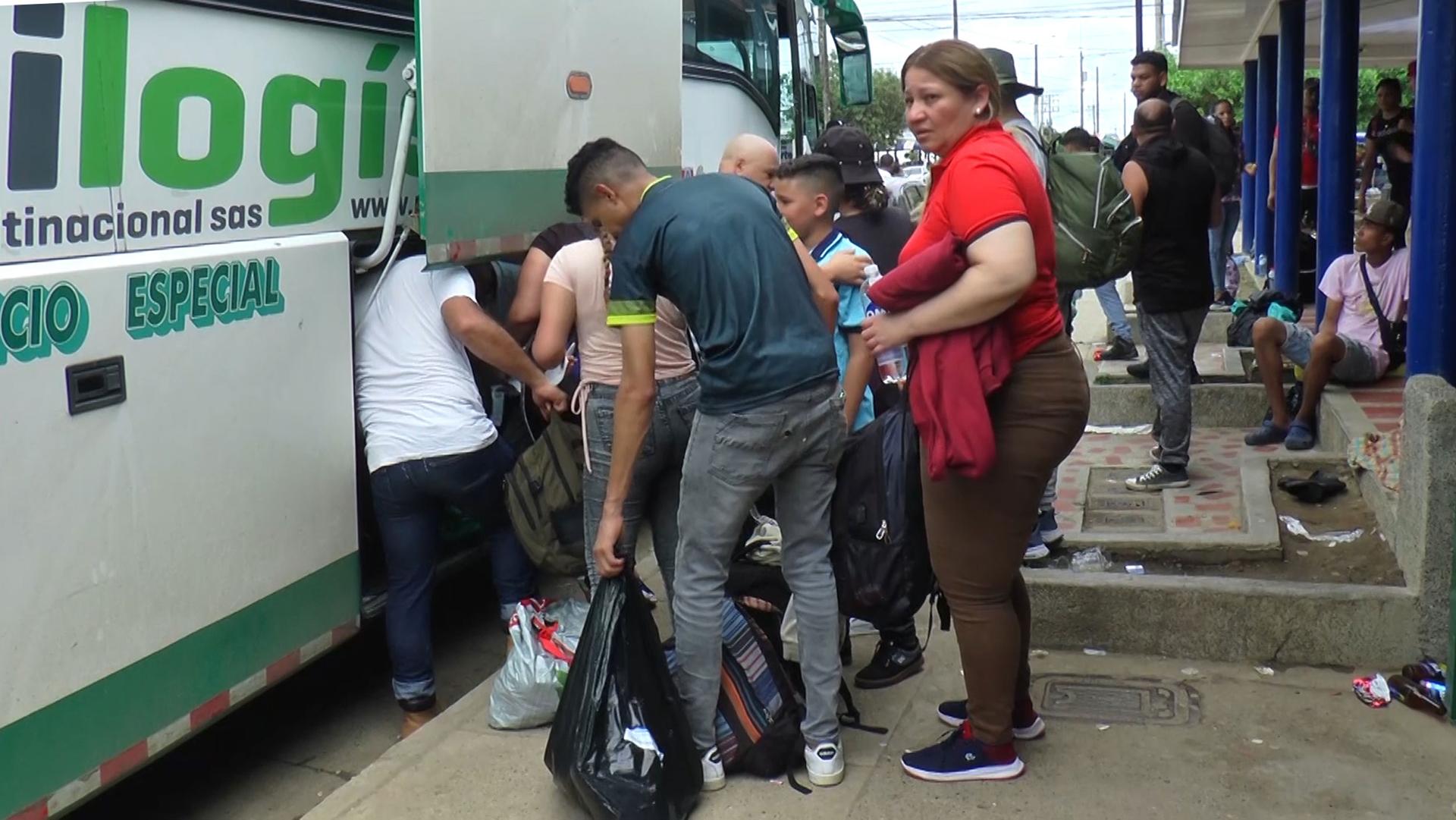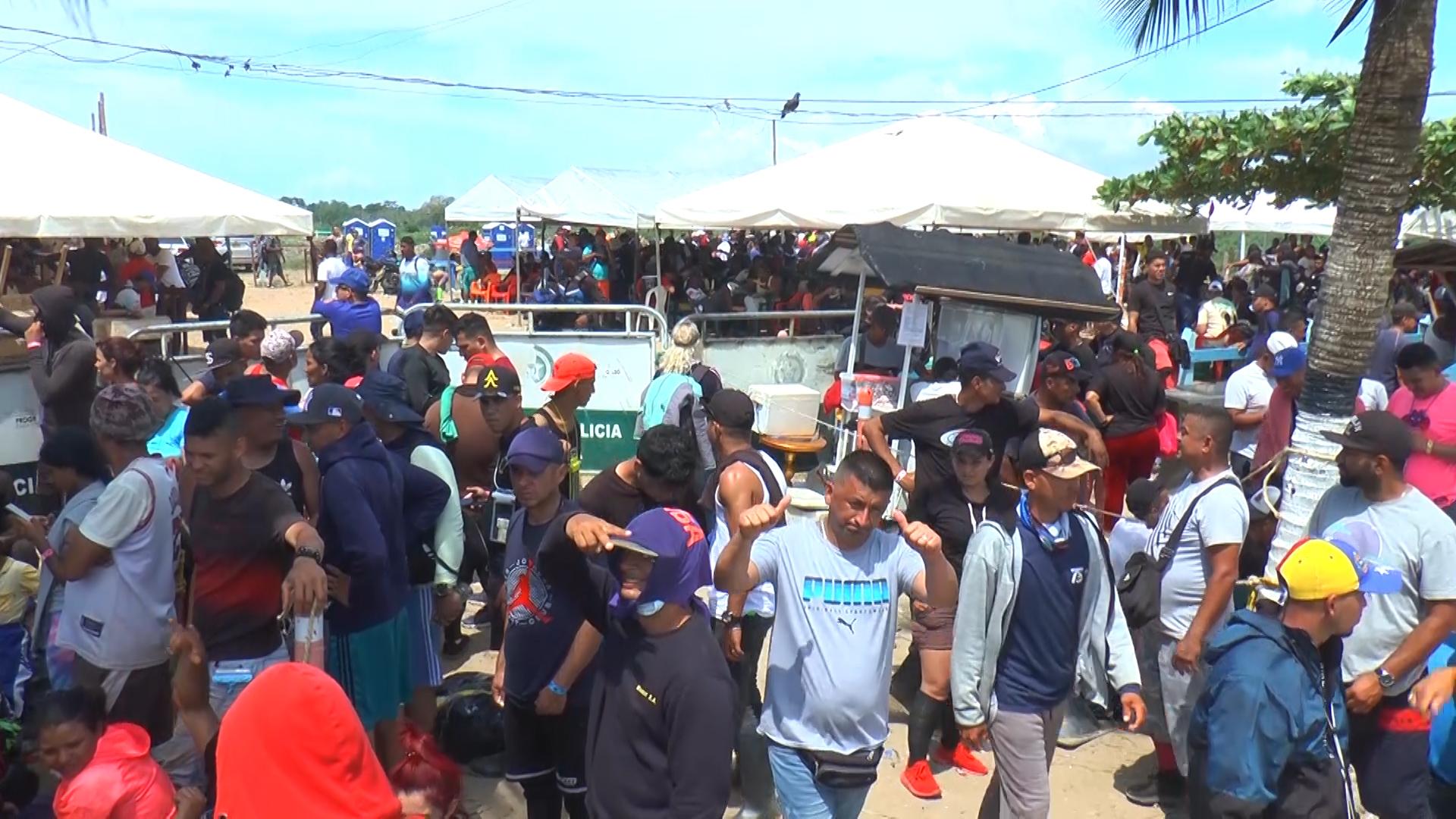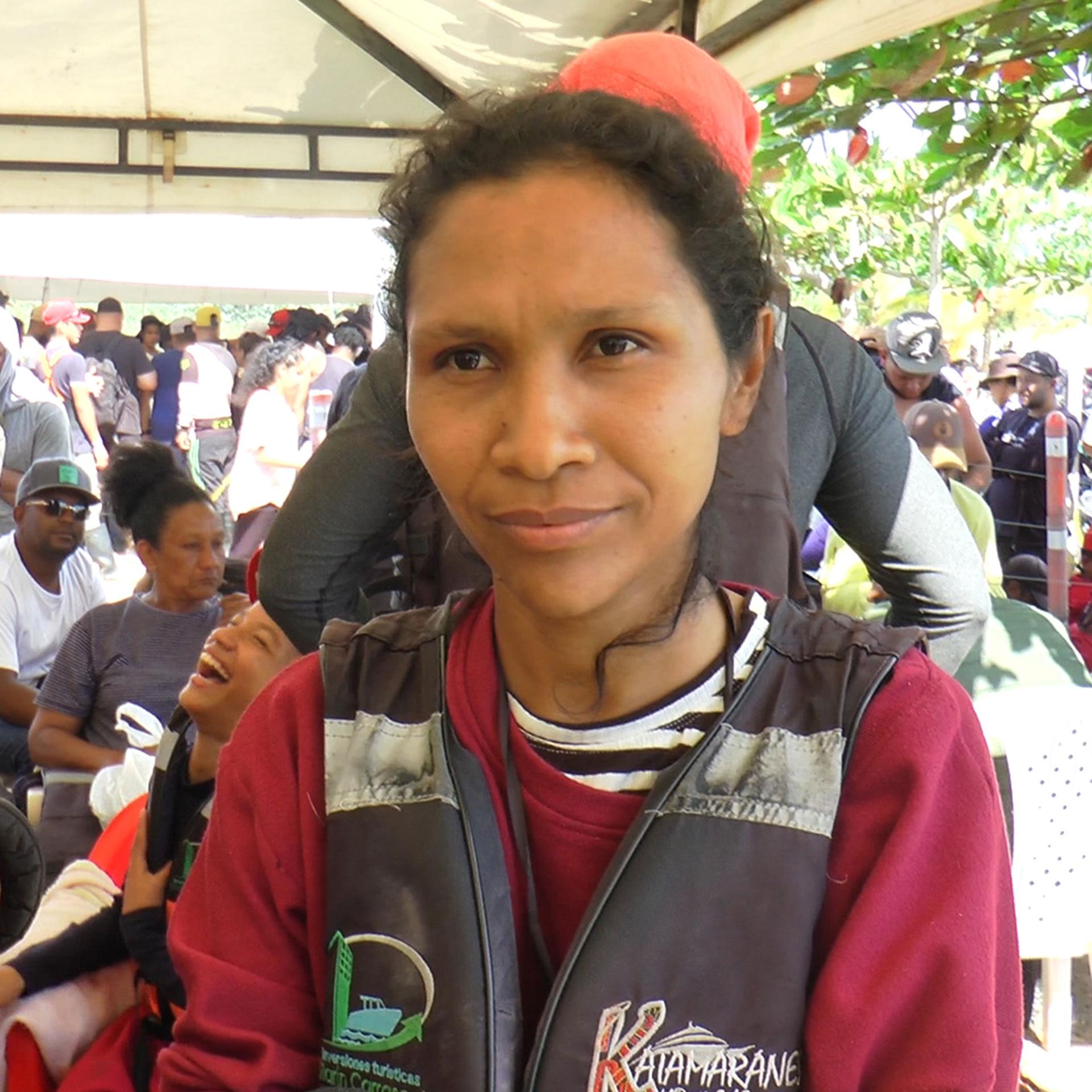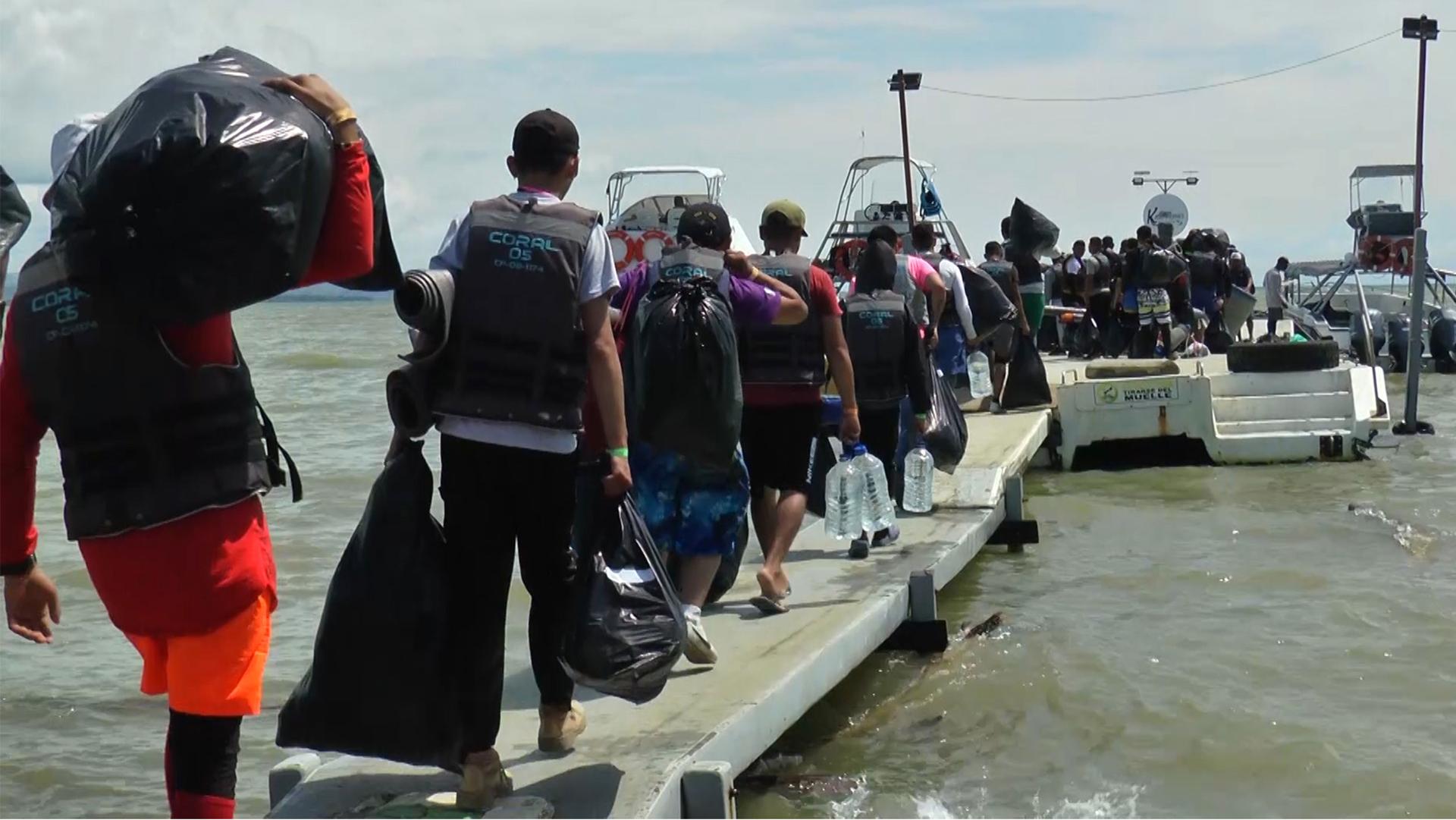Francis Rivero sold all of her belongings in September before making the dangerous journey from Venezuela to the United States.
But two weeks into her overland trip, the Biden administration announced a plan that will automatically reject all Venezuelans seeking asylum at the US border with Mexico if they enter the country without authorization — and will only benefit a fraction of asylum-seekers.

The US struck a deal with Mexico on Oct. 12, which agreed to take Venezuelans rejected at the US border. Under the new deal, Venezuelans will get a few weeks to stay in Mexico where they can apply to stay in Mexico as refugees or leave. The decision left thousands of Venezuelan migrants stranded in the north of Mexico, where some staged protests at a border bridge.
Rivero had only made it to Colombia’s northern border with Panama when she heard the news.
“I’m frustrated and confused,” Rivero said, as she loaded her bags onto a bus that took her back toward central Colombia. The high school teacher said she gave up on plans to seek asylum in the United States, and was not certain where she would be heading.
“My mind is blocked now,” she said. “I have no idea what to do next.”
In the first nine months of this year, about 130,000 Venezuelans had arrived at the US-Mexico border, seeking asylum as the economic and political situations in their country continued to deteriorate. Most were allowed to stay because there was no way to deport them back to Venezuela, which has no diplomatic relations with the US.
But with the numbers of Venezuelan migrants growing each month, Washington came up with this new policy — one that is causing frustration among Venezuelan migrants, and could expose some to new dangers.
In the Mexican border town of Ciudad Juarez, Jesus Rivero (no relation to Francis) said that he was deported after crossing the border and being held for several days at a detention center in Texas.
“There are children here and older people, and we don’t have a dollar in our pockets,” he explained in a video published on TikTok, where he was surrounded by dozens of other migrants, some of them still wearing detention center uniforms. Jesus Rivero said that Mexican officials gave him two weeks to leave the country.
The Biden administration says it is trying to discourage illegal immigration, and stop Venezuelans from making a long overland journey that includes a weeklong trek across the Darien Gap, a roadless and deadly stretch of jungle between South America and Central America.
But while the United States is now turning back Venezuelans who arrive at the border on foot, it also announced a new program that will allow 24,000 Venezuelans to enter the country only on flights after securing humanitarian visas.
Human Rights Watch researcher Ari Sawyer said, however, that this new scheme will only cover a small fraction of those who are trying to get asylum. To be eligible for this program, migrants need to have a passport, as well as a sponsor who already lives in the US and fills out an application on their behalf.
“Many Venezuelans are fleeing persecution from the government itself, making it very difficult to get a passport.”
“Many Venezuelans are fleeing persecution from the government itself, making it very difficult to get a passport,” Sawyer said.
“Additionally, passports are very expensive and Venezuelans do not make enough money in most cases to be able to pay for that.” Venezuela’s monthly minimum wage is currently worth about $16 and is the lowest in South America.
Sawyer said that by rejecting Venezuelans who arrive at the border without hearing their cases, the Biden administration is, in fact, violating international law.
“The point is that we don’t turn people away who might be subjected to persecution upon return,” Sawyer said.
The US government is now rejecting the remaining asylum-seekers trying to flee Venezuela by using Title 42, a public health law introduced by the Trump administration during the COVID-19 pandemic.

Adam Isacson from the Washington Office on Latin America, a human rights group, said that the new decision to use Title 42 on Venezuelans might discourage some of them from making the long journey to the United States.
“You’re probably not going to see 30,000 Venezuelans a month coming to the border anymore, because there’s not as much of a chance of getting asylum,” Isacson said.
But others might persist and seek more dangerous routes through the desert as they try to evade border patrols. Previously, Venezuelans were turning themselves in to border agents, who were allowing them to stay in the US.
“Let’s face it, you’re going to see more people dying,” Isacson said.
Over the past 12 months, more than 750 people perished in attempts to cross the southwest border, according to the US Department of Homeland Security. Many were from countries like Honduras and Guatemala, whose citizens are regularly denied entry at border points.
In Colombia, US diplomats, such as ambassador James Story, have published videos on Twitter pleading Venezuelan migrants not to head north.
But many people have ignored the warnings.

In the Colombian town of Necocli, hundreds of Venezuelans waited for boats a couple of weeks ago that would take them closer to the border with Panama, the next stop on their way to the United States.
Leidy Sequera — who moved from Venezuela to Ecuador to work at a banana farm, but was barely making enough to make ends meet — said she’s willing to take the dangerous journey north, even if the chances of getting into the US are now slimmer.
“I’m a mother and I have four kids, and one of them was studying medicine, but it’s very expensive,” she said.
“I just want to go to the US to work, so that I can pay for their education.”
Related: ‘I survived a green hell’: More Venezuelans are crossing the dangerous Darién Gap
The World is an independent newsroom. We’re not funded by billionaires; instead, we rely on readers and listeners like you. As a listener, you’re a crucial part of our team and our global community. Your support is vital to running our nonprofit newsroom, and we can’t do this work without you. Will you support The World with a gift today? Donations made between now and Dec. 31 will be matched 1:1. Thanks for investing in our work!
